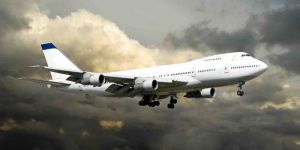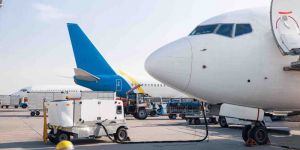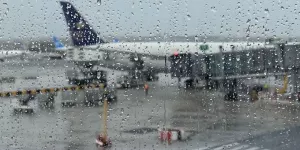Flight Delay Caused by Overfueling
As an air passenger, it's not uncommon to experience flight delays because of various factors such as weather conditions, technical issues and crew shortages. However, flight delays caused by overfueling are often overlooked, but they can be just as frustrating for travelers.
AirAdvisor acknowledges the inconvenience and frustration caused by flight delays and offers guidance to help passengers claim compensation in case of flight disruptions, including those caused by overfueling. In this article, we explore what overfueling is, the length of the delays it can cause, and what you can do if you're affected by this issue.
What is Overfueling?
Overfueling, also known as overfilling, is the process of adding excessive fuel to an aeroplane's fuel tank, beyond the required amount needed for a particular flight. This can occur due to various reasons, such as miscommunication between the fuel supplier and the airline, incorrect calculations, unexpected changes in the flight route or weather conditions.
While fuel is critical for an aircraft's operations, excessive fuel can increase the aircraft's weight, which can affect its performance and even cause potential safety risks. As a result, overfilling an aircraft can lead to flight delays or even cancellations in some cases.
Why is a Flight Delayed in Case of Overfueling?
Overfilling an aircraft can cause a flight to be delayed because of several reasons. Firstly, an aircraft has a maximum weight limit, and exceeding that limit can cause safety issues during takeoff and landing. Overfueling can, therefore, lead to an aircraft exceeding its weight limit, forcing the airline to deload the fuel before takeoff, which can cause flight departure delays.
Too much fuel in the aircraft's tank can also lead to inflight delays, as it may be too heavy to climb to the desired altitude, resulting in slower speeds and longer flight times. Sometimes, the excess fuel may need to be burned off mid-flight, which can cause additional delays and inconvenience for passengers.
Find out if you are owed compensation for a disrupted flight.Check Your Flight
How Long Are the Delays Caused by Overfueling?
The duration of the delay caused by an over-fueled aircraft can vary depending on the specific circumstances. In some cases, the delay may only last a few minutes while the excess fuel is burned off during taxiing. However, in more severe cases, the delay can last several hours while the fuel is unloaded from the aircraft to restore its weight to safe limits.
In addition to delays on the ground, an overfilled aircraft can also result in inflight delays. If the aircraft is carrying too much fuel, it can lead to more weight than the plane is designed to handle. This can cause the aircraft to burn more fuel than expected and result in longer flight times, causing delays in reaching the destination. In some cases, the aircraft may even have to make an unscheduled landing to refuel, causing further delays for passengers.
Can I Get Compensation in Case of Overfueling?
If your flight is delayed due to overfueling, you may be entitled to compensation under certain circumstances. EU261 protects your rights as a passenger and requires airlines to provide you with compensation for delayed or canceled flights, including those caused by overfueling. However, compensation eligibility can depend on several factors, such as the length of the delay you experience as a result, and the actions the airline takes in response to the delay.
To be eligible for delayed flight compensation, your flight must have departed from an airport within the EU or arrived at an EU airport on a European airline, and the delay needs to have exceeded 3 hours. The amount of compensation you may receive also depends on the distance of your flight, with longer flights qualifying for greater compensation (typically, up to €600). However, it's important to note that compensation is not guaranteed, as airlines may be able to claim an "extraordinary circumstance" defense if the overfueling was caused by factors beyond their control.
An example of an overfueling instance that’s out of an airline's control could be because of unexpected weather conditions, such as strong headwinds or unexpected turbulence during the flight, which require the aircraft to use more fuel than originally planned for. In a case like this, the pilot may request additional fuel to be added during a stopover, causing over-fueling and potential delays.
How to claim compensation for an Overfueling delay
In case of a flight delay caused by overfueling, it's important to keep all your travel documents and gather all your flight details to support your claim. Your travel documents include your boarding pass and any receipts for expenses incurred due to the delay and your flight details include your flight number, departure and arrival times and the reason for the overfueling. You can then contact the airline to submit your compensation claim, either online or by sending a letter to their customer service department.
If you require assistance in claiming compensation for a flight delay you experience because of an over-fueled aircraft (or any other reason), AirAdvisor is the team you can rely on to help you. We guide you through the process, assist you in submitting your claim to the airline and do all the legal heavy lifting, ensuring you receive the compensation you deserve for the inconvenience and disruption caused by the delay.
Claim with AirAdvisor and get up to €600 (£520) compensation. Find out how much you’re owed today.Check Your Flight


Flight Compensation Calculator:
Check if you are entitled to flight delay compensation in just 3 minutes.





